| Listing 1 - 10 of 16 | << page >> |
Sort by
|
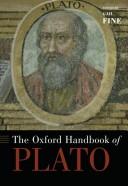
ISBN: 9780195182903 0195182901 Year: 2008 Volume: *14 Publisher: New York, N.Y. Oxford University Press
Abstract | Keywords | Export | Availability | Bookmark
 Loading...
Loading...Choose an application
- Reference Manager
- EndNote
- RefWorks (Direct export to RefWorks)

ISBN: 9783428125777 Year: 2008 Volume: 148 Publisher: Berlin Duncker & Humblot
Abstract | Keywords | Export | Availability | Bookmark
 Loading...
Loading...Choose an application
- Reference Manager
- EndNote
- RefWorks (Direct export to RefWorks)
Slavery --- Plato --- Aflāṭūn --- Aplaton --- Bolatu --- Platon, --- Platonas --- Platone --- Po-la-tʻu --- Pʻŭllatʻo --- Pʻŭllatʻon --- Pʻuratʻon --- Πλάτων --- אפלטון --- פלאטא --- פלאטאן --- פלאטו --- أفلاطون --- 柏拉圖 --- 플라톤 --- Criticism and interpretation. --- Platon --- Platoon --- Платон --- プラトン
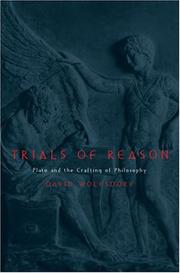
ISBN: 9780195327328 0195327322 0199870640 1441600337 1281948942 019804383X Year: 2008 Publisher: Oxford Oxford university press
Abstract | Keywords | Export | Availability | Bookmark
 Loading...
Loading...Choose an application
- Reference Manager
- EndNote
- RefWorks (Direct export to RefWorks)
Philosophy, Ancient. --- Philosophie ancienne --- Plato. --- Philosophy, Ancient --- Ancient philosophy --- Greek philosophy --- Philosophy, Greek --- Philosophy, Roman --- Roman philosophy --- Aflāṭūn --- Aplaton --- Bolatu --- Platon, --- Platonas --- Platone --- Po-la-tʻu --- Pʻŭllatʻo --- Pʻŭllatʻon --- Pʻuratʻon --- Πλάτων --- אפלטון --- פלאטא --- פלאטאן --- פלאטו --- أفلاطون --- 柏拉圖 --- 플라톤 --- Plato --- Platon --- Platoon --- Платон --- プラトン
Book
ISBN: 9783631535202 3631535201 Year: 2008 Volume: 95. Publisher: Frankfurt am Main Lang
Abstract | Keywords | Export | Availability | Bookmark
 Loading...
Loading...Choose an application
- Reference Manager
- EndNote
- RefWorks (Direct export to RefWorks)
Ethics, Ancient --- Psychology --- Thought and thinking --- Act (Philosophy) --- Morale ancienne --- Psychologie --- Pensée --- Action (Philosophie) --- History --- Histoire --- Plato. --- Pensée --- Thymos (The Greek word) --- Thumos (The Greek word) --- Greek language --- Ancient ethics --- Etymology --- Plato --- Aflāṭūn --- Aplaton --- Bolatu --- Platon, --- Platonas --- Platone --- Po-la-tʻu --- Pʻŭllatʻo --- Pʻŭllatʻon --- Pʻuratʻon --- Πλάτων --- אפלטון --- פלאטא --- פלאטאן --- פלאטו --- أفلاطون --- 柏拉圖 --- 플라톤 --- Language. --- Platon --- Platoon --- Платон --- プラトン
Book
ISBN: 9783406577710 3406577717 282184641X Year: 2008 Volume: 131 Publisher: München Beck
Abstract | Keywords | Export | Availability | Bookmark
 Loading...
Loading...Choose an application
- Reference Manager
- EndNote
- RefWorks (Direct export to RefWorks)
Der siebte Brief Platons ist der berühmteste Brief der philosophischen Weltliteratur. In ihm skizziert Platon, nur wenige Jahre vor seinem Tod (347 v. Chr.), Stationen seines Lebens und gibt einen Grundriss seiner Philosophie. Dies ist die einzige uns überlieferte Äußerung Platons über sich selbst und sein Philosophieren. Der sogenannte philosophische Exkurs des Briefes bringt die konstituierenden Elemente seines philosophischen Denkens komprimiert zur Darstellung. Vor dem Hintergrund der neuesten Forschung zum Siebten Brief geht die vorliegende Untersuchung von einem bisher übersehenen Ansatz aus. Denn insoweit die Welt der Erscheinung Abbild der Ideen ist, ist die Welt der Erscheinung Zeichen: Zeichen der Ideen. Da die Ideenlehre auch im Siebten Brief von axiomatischer Gültigkeit ist und hier der Begriff des Zeichens eine Schlüsselfunktion hat, unternimmt die vorliegende Untersuchung die Interpretation zum ersten Male unter dem Gesichtspunkt von Platons eigener Zeichentheorie, seiner Semiotik. Obwohl die semiotische Interpretation gemäß Platons eigener Denkvoraussetzung naheliegt, ist eine solche bisher in der Platonforschung in Bezug auf den Siebten Brief bislang nicht zur Anwendung gebracht worden.
Plato. --- Plato --- Language --- Philosophy & Religion --- Philosophy --- Aflāṭūn --- Aplaton --- Bolatu --- Platon, --- Platonas --- Platone --- Po-la-tʻu --- Pʻŭllatʻo --- Pʻŭllatʻon --- Pʻuratʻon --- Πλάτων --- אפלטון --- פלאטא --- פלאטאן --- פלאטו --- أفلاطون --- 柏拉圖 --- 플라톤 --- Criticism and interpretation. --- Language. --- Platon --- Platoon --- Платон --- プラトン --- Plato - Epistles - 7th --- Plato - Language --- Ideenlehre --- Der siebte Brief --- Semiotik
Book
ISBN: 9783050045078 3050045078 Year: 2008 Publisher: Berlin Akademie-Verlag
Abstract | Keywords | Export | Availability | Bookmark
 Loading...
Loading...Choose an application
- Reference Manager
- EndNote
- RefWorks (Direct export to RefWorks)
Intellect --- Multiple intelligences --- Plato --- Influence --- Theory of multiple intelligences --- Aflāṭūn --- Aplaton --- Bolatu --- Platon, --- Platonas --- Platone --- Po-la-tʻu --- Pʻŭllatʻo --- Pʻŭllatʻon --- Pʻuratʻon --- Πλάτων --- אפלטון --- פלאטא --- פלאטאן --- פלאטו --- أفلاطون --- 柏拉圖 --- 플라톤 --- Platon --- Platoon --- Платон --- プラトン --- Intellect - Congresses --- Multiple intelligences - Congresses --- Plato - Influence - Congresses
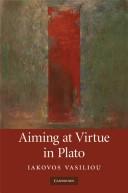
ISBN: 9780521367943 9780521862967 9780511482687 9780511454714 0511454716 9780511455742 0511455747 051148268X 9780511457708 0511456395 9780511456398 0511457707 1107196752 1281945021 9786611945022 051145368X 0521862965 0521367948 9781107196759 9781281945020 6611945024 Year: 2008 Publisher: Cambridge, UK
Abstract | Keywords | Export | Availability | Bookmark
 Loading...
Loading...Choose an application
- Reference Manager
- EndNote
- RefWorks (Direct export to RefWorks)
This study of Plato's ethics focuses on the concept of virtue. Based on detailed readings of the most prominent Platonic dialogues on virtue, it argues that there is a central yet previously unnoticed conceptual distinction in Plato between the idea of virtue as the supreme aim of one's actions and the determination of which action-tokens or -types are virtuous. Appreciating the 'aiming/determining distinction' provides detailed and mutually consistent readings of the most well-known Platonic dialogues on virtue as well as original interpretations of central Platonic questions. Unlike most examinations of Plato's ethics, this study does not take as its centrepiece the 'eudaimonist framework', which focuses on the relationship between virtue and happiness. Instead, it argues that the dialogues themselves begin with the idea of the supremacy of virtue, examine how that claim can be defended, and address how to determine what constitutes the virtuous action.
Plato --- Ethics --- Virtue --- Conduct of life --- Human acts --- Deontology --- Ethics, Primitive --- Ethology --- Moral philosophy --- Morality --- Morals --- Philosophy, Moral --- Science, Moral --- Philosophy --- Values --- Plato. --- Aflāṭūn --- Aplaton --- Bolatu --- Platon, --- Platonas --- Platone --- Po-la-tʻu --- Pʻŭllatʻo --- Pʻŭllatʻon --- Pʻuratʻon --- Πλάτων --- אפלטון --- פלאטא --- פלאטאן --- פלאטו --- أفلاطون --- 柏拉圖 --- 플라톤 --- Platon --- Platoon --- Virtue. --- Ethics. --- Vertus --- Morale --- Платон --- プラトン --- Philosophy & Religion --- Arts and Humanities
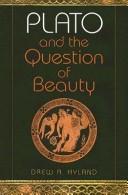
ISBN: 9786611765637 1281765635 0253000262 9780253000262 0253351383 9780253351388 9780253219770 0253219779 6611765638 9781281765635 Year: 2008 Publisher: Bloomington Indiana University Press
Abstract | Keywords | Export | Availability | Bookmark
 Loading...
Loading...Choose an application
- Reference Manager
- EndNote
- RefWorks (Direct export to RefWorks)
Reveals the intimate connection between beauty and the philosophical life
Aesthetics. --- Beautiful, The --- Beauty --- Esthetics --- Taste (Aesthetics) --- Philosophy --- Art --- Criticism --- Literature --- Proportion --- Symmetry --- Psychology --- Plato. --- Platon --- Plato --- Aflāṭūn --- Aplaton --- Bolatu --- Platonas --- Platone --- Po-la-tʻu --- Pʻŭllatʻo --- Pʻŭllatʻon --- Pʻuratʻon --- Πλάτων --- אפלטון --- פלאטא --- פלאטאן --- פלאטו --- أفلاطون --- 柏拉圖 --- 플라톤 --- Платон --- プラトン --- Radio broadcasting Aesthetics --- Aesthetics
Book
ISBN: 9782870601402 2870601409 Year: 2008 Volume: 20 Publisher: Bruxelles OUSIA
Abstract | Keywords | Export | Availability | Bookmark
 Loading...
Loading...Choose an application
- Reference Manager
- EndNote
- RefWorks (Direct export to RefWorks)
Philosophy, Ancient --- Pythagoras and Pythagorean school --- Philosophie ancienne --- Pythagorisme --- Congresses. --- Congrès --- Plato --- Pythagoras --- Platon, --- Classical Greek philosophy --- Congrès --- Pitágora --- Pitagora di Samo --- Pitágoras --- Pitágoras de Samos --- Pythagore --- Πυθαγόρας --- فيثاغورس --- Aflāṭūn --- Aplaton --- Bolatu --- Platonas --- Platone --- Po-la-tʻu --- Pʻŭllatʻo --- Pʻŭllatʻon --- Pʻuratʻon --- Πλάτων --- אפלטון --- פלאטא --- פלאטאן --- פלאטו --- أفلاطون --- 柏拉圖 --- 플라톤 --- Platon --- Platoon --- Appreciation --- History --- Congresses --- Criticism and interpretation --- Платон --- プラトン --- Philosophy, Ancient - Congresses --- Plato - Congresses --- Platon, 428-348 av JC
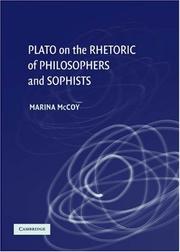
ISBN: 9780521878630 0521878632 9780511497827 9780521175371 0521175372 9780511367908 0511367902 0511367317 9780511367311 0511497822 9786611146344 6611146342 1107183472 9781107183476 1139133195 9781139133197 0511366701 9780511366703 0511366078 9780511366079 128114634X Year: 2008 Publisher: Cambridge Cambridge University press
Abstract | Keywords | Export | Availability | Bookmark
 Loading...
Loading...Choose an application
- Reference Manager
- EndNote
- RefWorks (Direct export to RefWorks)
Marina McCoy explores Plato's treatment of the rhetoric of philosophers and sophists through a thematic treatment of six different Platonic dialogues, including Apology, Protagoras, Gorgias, Republic, Sophist, and Phaedras. She argues that Plato presents the philosopher and the sophist as difficult to distinguish, insofar as both use rhetoric as part of their arguments. Plato does not present philosophy as rhetoric-free, but rather shows that rhetoric is an integral part of philosophy. However, the philosopher and the sophist are distinguished by the philosopher's love of the forms as the ultimate objects of desire. It is this love of the forms that informs the philosopher's rhetoric, which he uses to lead his partner to better understand his deepest desires. McCoy's work is of interest to philosophers, classicists, and communications specialists alike in its careful yet comprehensive treatment of philosophy, sophistry, and rhetoric as portrayed through the drama of the dialogues.
Rhetoric. --- Sophists (Greek philosophy) --- Rhétorique --- Sophistes grecs --- Plato. --- Gorgias, --- Rhetoric --- Philosophers --- Plato --- Rhétorique --- Language and languages --- Speaking --- Authorship --- Expression --- Literary style --- Scholars --- Philosophy, Ancient --- Gorgias. --- Aflāṭūn --- Aplaton --- Bolatu --- Platon, --- Platonas --- Platone --- Po-la-tʻu --- Pʻŭllatʻo --- Pʻŭllatʻon --- Pʻuratʻon --- Πλάτων --- אפלטון --- פלאטא --- פלאטאן --- פלאטו --- أفلاطون --- 柏拉圖 --- 플라톤 --- Gorgias Leontinus --- Gorgias von Leontinoi --- Platon --- Platoon --- Philosophers. --- Sophists (Greek philosophy). --- Criticism and interpretation. --- Платон --- プラトン --- Arts and Humanities --- History --- Platon (0427?-0348? av. J.-C.) --- Critique et interprétation
| Listing 1 - 10 of 16 | << page >> |
Sort by
|

 Search
Search Feedback
Feedback About UniCat
About UniCat  Help
Help News
News